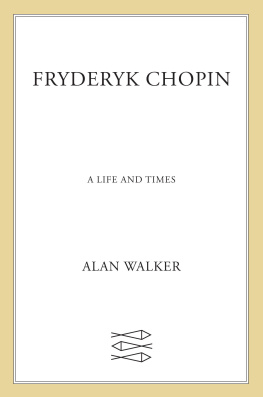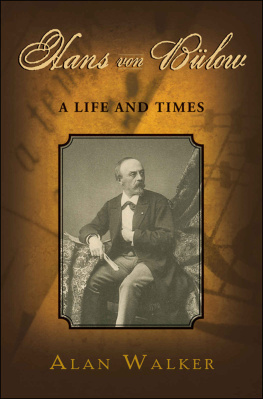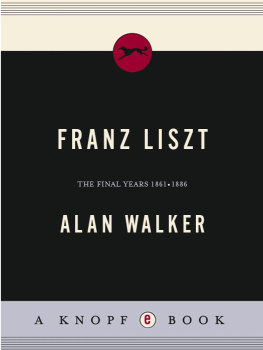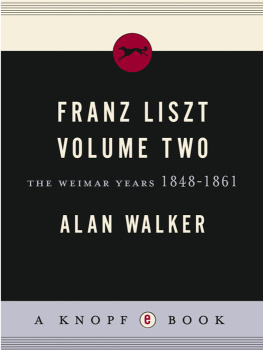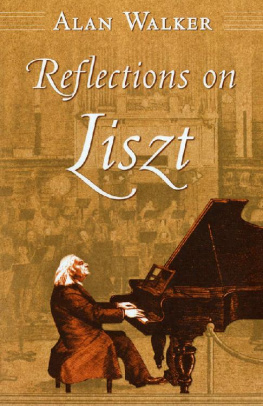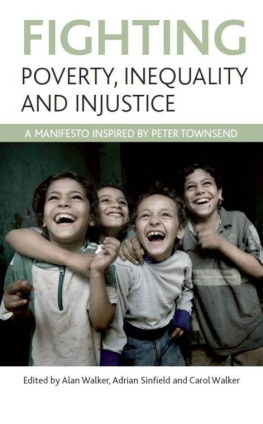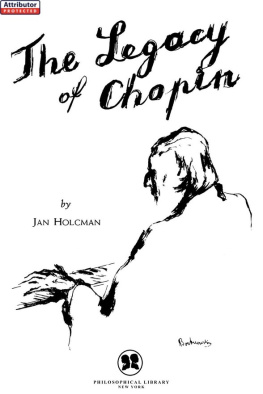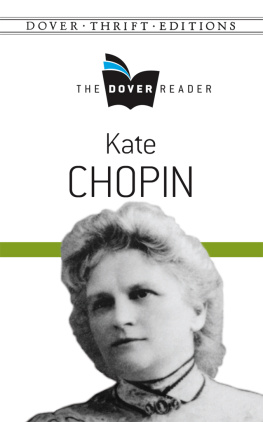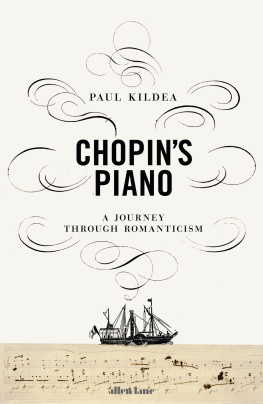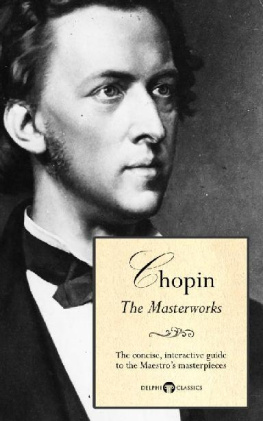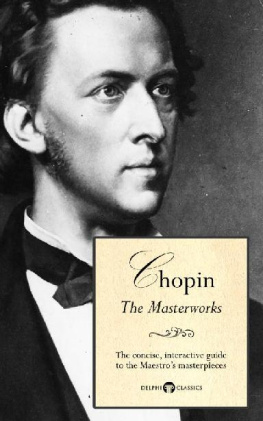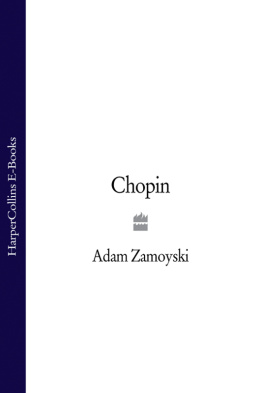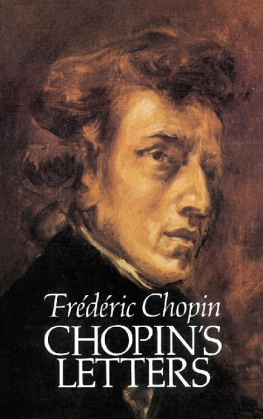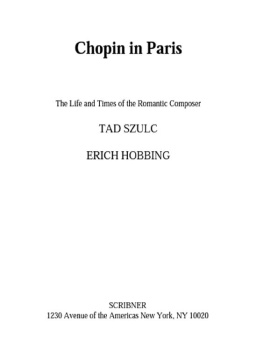
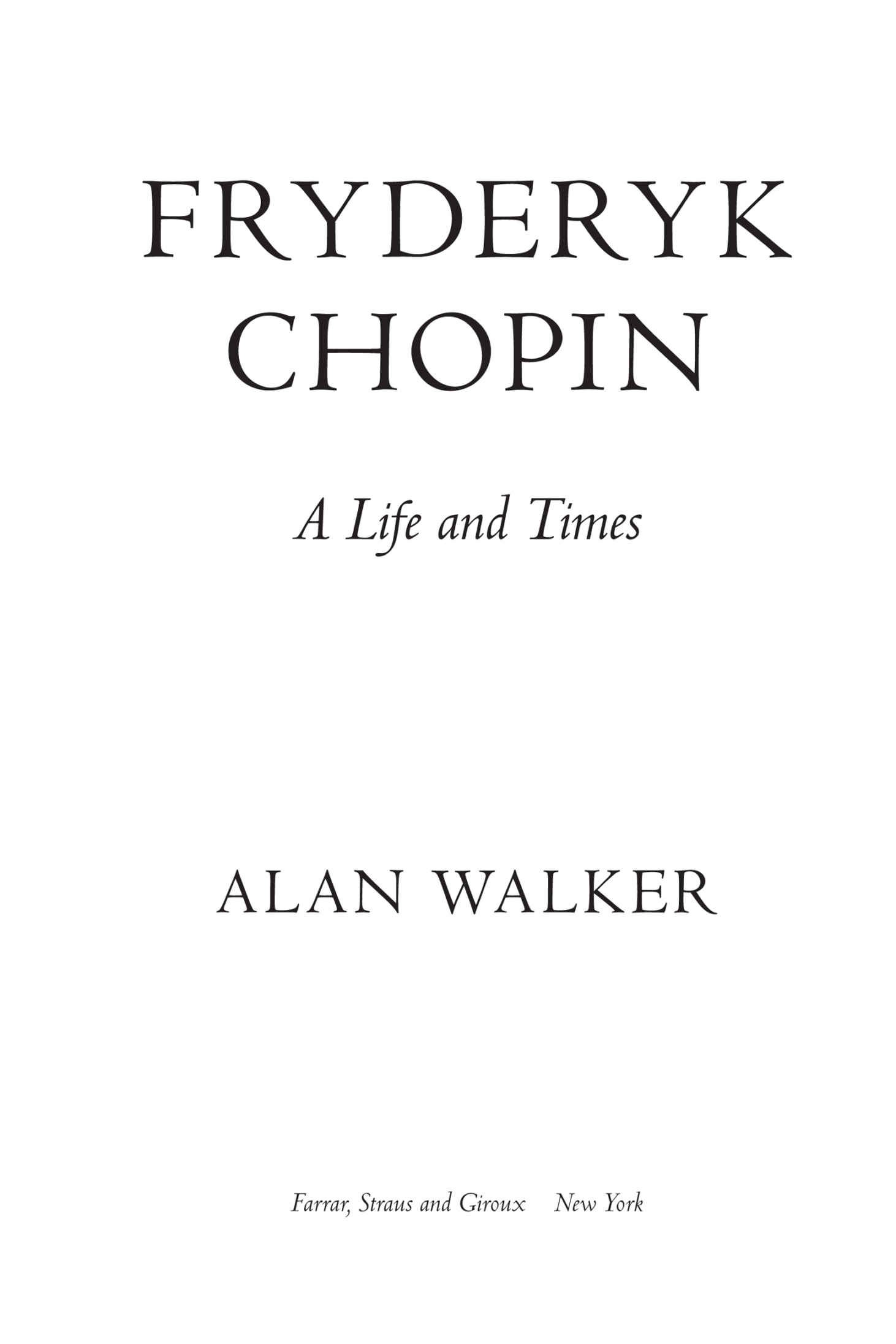
Thank you for buying this
Farrar, Straus and Giroux ebook.
To receive special offers, bonus content,
and info on new releases and other great reads,
sign up for our newsletters.


Or visit us online at
us.macmillan.com/newslettersignup
For email updates on the author, click here.
The author and publisher have provided this e-book to you for your personal use only. You may not make this e-book publicly available in any way. Copyright infringement is against the law. If you believe the copy of this e-book you are reading infringes on the authors copyright, please notify the publisher at: us.macmillanusa.com/piracy.
To the memory of my grandfather
Edward Ernest Whitby,
wise counselor and best friend
More than ten years have elapsed since I embarked on the writing of my life and times of Chopin. Many people helped me along the way and it is impossible to thank them all. Nonetheless, the following individuals must be acknowledged because without their assistance it is entirely possible that my work might have foundered and remained unfinished.
I received much help and encouragement from Po l ish scholars during my various visits to Warsaw and it is a pleasure to mention that fact here. For permission to work in the Chopin National Institute and the Chopin Museum in Warsaw I want to thank the director, Dr. Artur Szklener. The support I received from his staff, and especially from Dr. Marcin Konik, Iwona odziska, and Izabella Butkiewicz of the institutes Phototque, was exemplary. They showed much patience in dealing with the many questions I directed their way, and even served me with aromatic tea while doing so. I received similar warmth of treatment from the staff of the Chopin Museum, which houses many treasures on permanent display there. I am obliged to the curator of the museum, Maciej Janicki, for permission to work there, and I am especially grateful to Magdalena Kulig for introducing me to the museums archiveswhere I was able to inspect a number of rare items at leisure, including Chopins personal diaries, various music manuscripts, and the original copies of his youthful Szafarnia Courier , the journal he created and edited when he was fourteen years old. Nor must I forget to acknowledge the guidance of Mariola Wojtkiewicz, curator of Chopins birthplace at elazowa Wola, who placed her knowledge of the history of the building and surrounding estate at my disposal, and saved me from possible error and confusion. Pawe Kamiski, the co-editor of the Po l ish National Edition of Chopins works, was more than generous in dealing with my questions and brought some instructive points of view to bear on a number of editorial matters connected with Chopins texts. The many written exchanges that preceded our personal meetings in Warsaw were informative, and I am grateful for the interest that he showed in my work. I also owe thanks to Professor Tadeusz Dobosz, a member of the faculty of Wrocaws Medical University, who was present during the temporary exhumation of Chopins heart from its resting place in Warsaws Church of the Holy Cross, in April 2014, and shared some observations based on his visual inspection of the organ.
To Piotr Mysakowski, one of Polands leading Chopin scholars, it is hardly enough to say thank you. From the start he readily placed his knowledge of the minutiae of Chopins daily life in Poland at my disposal, and dispensed erudition and hospitality in equal proportion. He not only answered with courtesy and kindness my countless questions about Chopins Po l ish connections, however esoteric, but also acted as my guide on visits to such places as Szafarnia and Sanniki, where the adolescent Chopin spent his summer holidays, and to various locations in and around Warsaw associated with Chopin, including the historic Powzki Cemetery, where all the composers immediate family members are buried and a number of his close friends and colleagues as well. Our journeys eventually extended to Antonin, Prince Antoni Radziwis hunting lodge, where Chopin stayed as his guest and made music with the cello-playing prince and his family. These expeditions were a reminder of the importance of what I have elsewhere called the geography of biography, the indispensable experience of visiting the places about which one writes, or risk losing the possibility of bringing them to life.
Gabriel Quetglas Olin, the director of the Chopin Museum in the Valldemosa Charterhouse, Majorca, helped me to clear up some complicated matters related to Chopins stay on the island during the wretched winter of 183839. He also provided me with documentary evidence connected to the fate of the Pleyel piano sent to Chopin from Paris, which I have incorporated in the chapter titled A Winter in Majorca, and I am grateful for his friendly assistance.
Much has changed at Nohant since Chopins time and there are not many traces of his presence left. George Sand herself expunged many of them after her rupture with Chopin, and time did the rest. Still, there are ghosts that continue to haunt the Nohant estate for those who want to pursue them. It is a salutary experience to enter the small chapel just a stones throw from the manor house, whose unyielding pews seated no more than a handful of worshippers. Here the local artisans and their families attended Sunday mass and were baptized, married, and eventually sent to their graves in the adjoining cemetery. It was in this chapel, in May 1847, that Sand gave away her daughter, Solange, in matrimony to the sculptor Auguste Clsinger and sowed the wind that ensured she would reap the whirlwind. The resulting storm tore her family apart and resulted in Sands separation from Chopin as well. We have reserved for its proper place the telling of that dramatic story. For the moment it is enough to observe that buildings, too, reverberate with times past and may bear witness to the human condition.
To Lisa Yui, who gave me the benefit of her erudition whenever I appealed to it, I am particularly indebted. She was a part of the writing of this book almost from the beginning. She assisted me in dealing with myriad problems, both great and small, quietly prompted me toward their solutions, and treated my book with the same care as if it were her own. The Catalogue of Works, with its concordance tables, was particularly troublesome to bring into line with modern research, and Dr. Yui helped me to achieve its final form. To her I also owe some new information about the marriage of Camille Pleyel to the concert pianist Marie Moke, as well as its dissolution, which I have woven into the narrative of the chapter titled An English Interlude. Professor Richard Zimdars and Professor Gbor Csepregi offered me welcome support in the early days when I most needed it, and their friendly inquiries across the years helped to keep the project moving.
The primary documents on which Chopin scholarship rests come to us in a variety of forms and languages. I received much help from Elizabeth Zabek and Anna Piotrowska with translations of Po l ish texts, some of which are to be found only in nineteenth-century newspapers in Warsaw or in the personal diaries and reminiscences of those who knew Chopin. Ms. Piotrowska also assisted me during the preliminary stages of my work, by addressing various inquiries to Po l ish archives and attending to their prompt resolution. Dominique Caplier went through the many French translations scattered throughout the book, and suggested better ones where it became evident that the old ones were no longer serviceable. She also provided an impressive array of secretarial services, read the entire typescript, and demonstrated yet again her uncanny ability to produce solutions before anyone knew that there was a problem. To Bridget Whittle of McMaster University Librarys Research Collections, I also extend special thanks for help in preparing family trees, maps, and work lists, and for coming to my rescue in those areas where my lamentable lack of computer skills nearly brought the enterprise to a standstill. The fact that it was kept moving at all was due in no small measure to her colleague Beverly Bayzat, who provided emergency technical support whenever my chronic ineptitude with most things mechanical made further interventions a matter of urgent necessity. Alex Burtzos engraved the music examples and spent many hours preparing them for publication. He brought a composers insight to bear on the task of reproducing Chopins often idiosyncratic notation, and it is a pleasure to recognize the professional manner in which he carried out this work.
Next page
